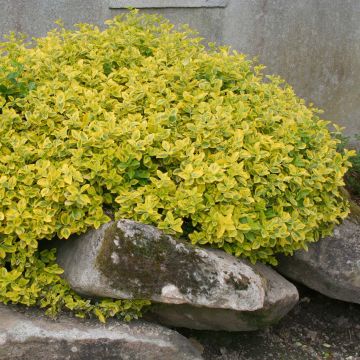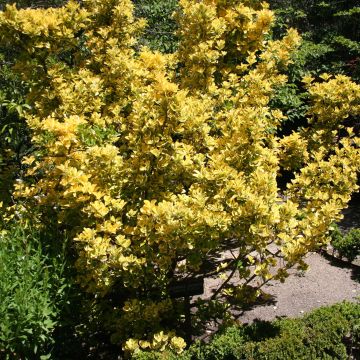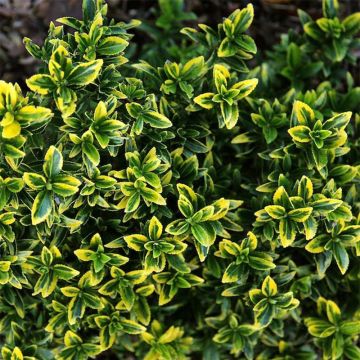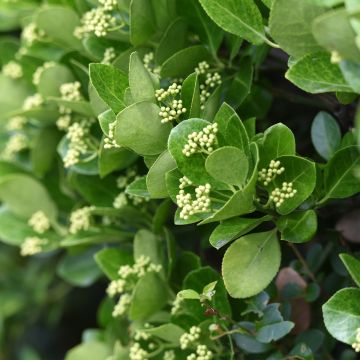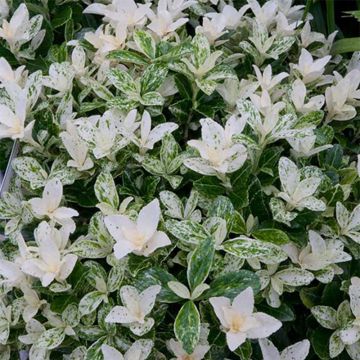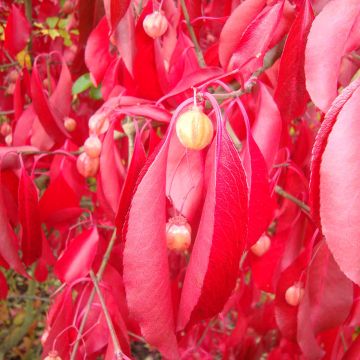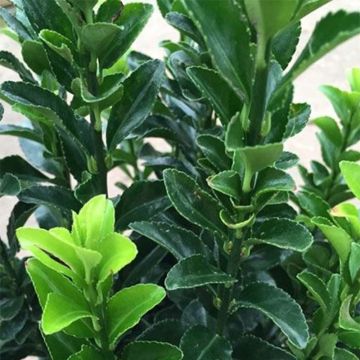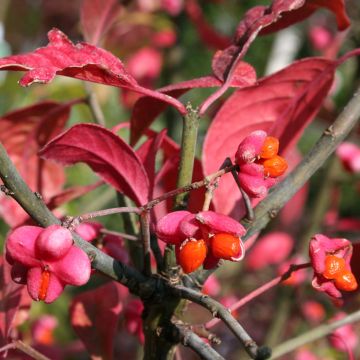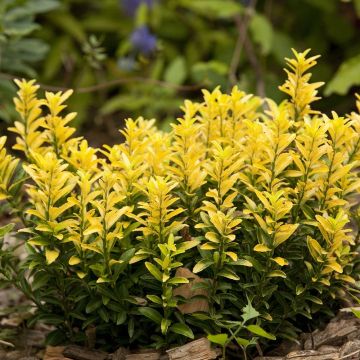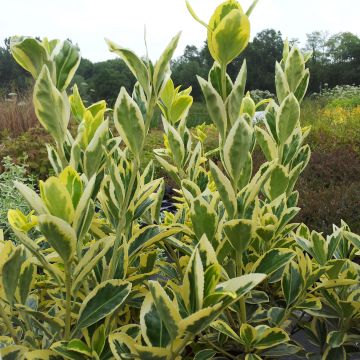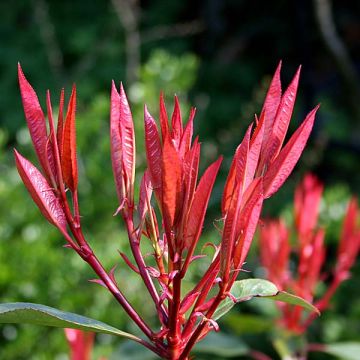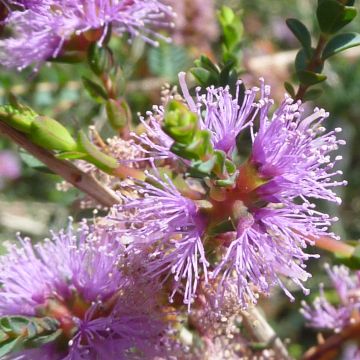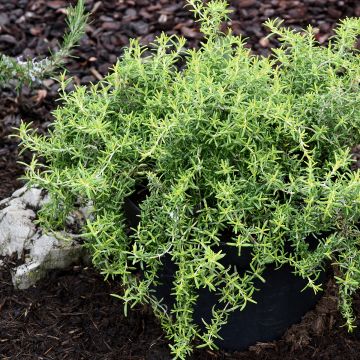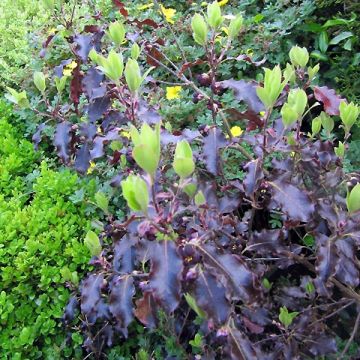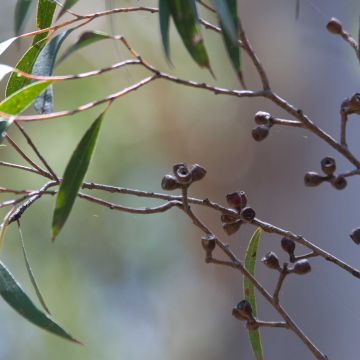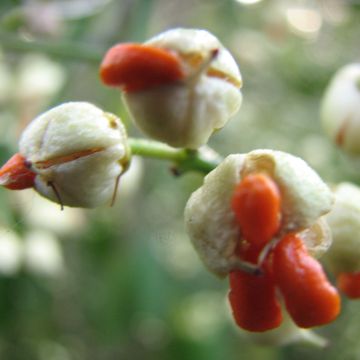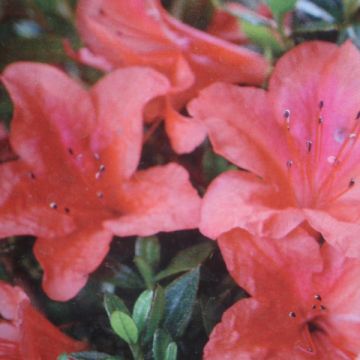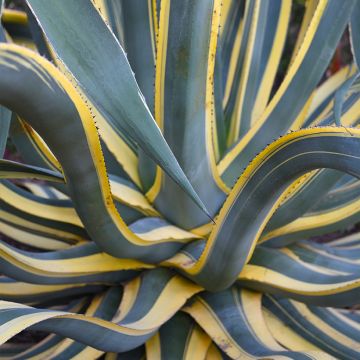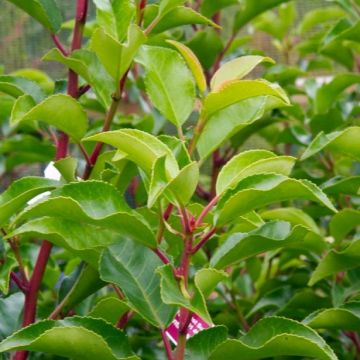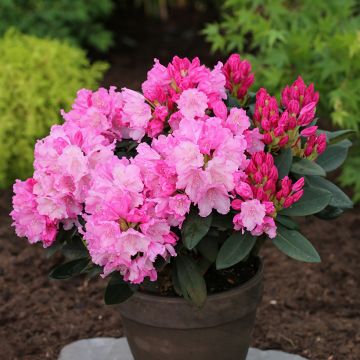Shipping country and language
Your country of residence may be:
Your country of residence is:
For a better user experience on our website, you can select:
Your shipping country:
Andorra
Austria
Belgium
Bulgaria
Canada
Chile
Croatia
Cyprus
Czechia
Denmark
Estonia
Finland
France
Germany
Greece
Hungary
Iceland
Ireland
Italy
Latvia
Lithuania
Luxembourg
Malta
Monaco
Netherlands
Poland
Portugal
Romania
Slovakia
Slovenia
Spain
Sweden
Switzerland
United Kingdom
We only deliver seed and bulb products to your country. If you add other products to your basket, they cannot be shipped.
Language:
French
German
Spanish
English
My Account
Hello
My wish lists
Plantfit
Log in / Register
Existing customer?
New customer?
Create an account to track your orders, access our customer service and, if you wish, make the most of our upcoming offers.
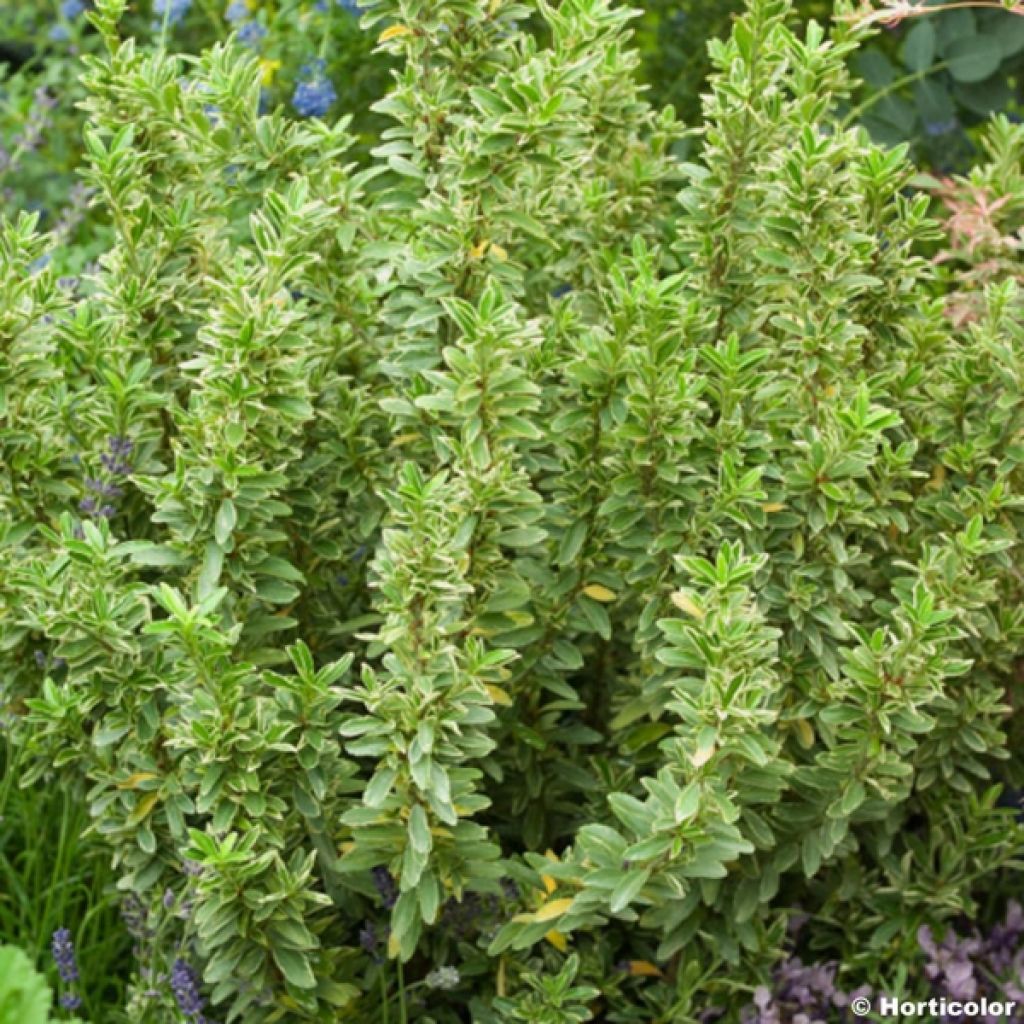

Euonymus japonicus Microphyllus Albovariegatus - Japanese Spindle
Euonymus japonicus Microphyllus Albovariegatus - Japanese Spindle
Euonymus japonicus Microphyllus Albovariegatus
Japanese Spindle, Evergreen Spindle
Watered with care, although quite tiny, beautifully displayed, planted to observe its growth.
Christine K., 09/09/2018
Order in the next for dispatch today!
Dispatch by letter from €3.90.
Delivery charge from €5.90 Oversize package delivery charge from €6.90.
More information
This item is not available in your country.
Schedule delivery date,
and select date in basket
This plant carries a 24 months recovery warranty
More information
We guarantee the quality of our plants for a full growing cycle, and will replace at our expense any plant that fails to recover under normal climatic and planting conditions.
From €5.90 for pickup delivery and €6.90 for home delivery
Express home delivery from €8.90.
From €5.90 for pickup delivery and €6.90 for home delivery
Express home delivery from €8.90.
Does this plant fit my garden?
Set up your Plantfit profile →
Description
The Euonymus japonicus Microphyllus Albovariegatus is a delightful variety of Japanese spindle tree. It is small in size but bushy, with fine, glossy foliage, green margined with white, resembling that of variegated boxwood. Bright and decorative throughout the year, this bush provides an elegant decoration, in a small hedge or in a container on the terrace. Excellent alternative to boxwood in partially shaded areas of the garden, tolerating pruning well, this bush prefers partial shade and moist soils, including those with a tendency to be chalky.
The Japanese spindle tree belongs to the family of Celastraceae. It is native, as its name suggests, to Japan. But it is also found in China and Korea. In the wild, this large bush grows on slopes, in open areas on the edge of forests, and even by the seaside where it can reach a height of 8m (26.2ft) and become a tree. Its hardiness is down to around -12°C (10.4°F), and its growth is quite slow. Its foliage persists throughout the year, even in winter.
'Microphyllus Albovariegatus' is a dwarf selection that develops small leaves, beautifully margined with white on a dark green background. This bush barely reaches 1m (3.3ft) in all directions and naturally has a bushy and dense habit. Well-branched from the base, its upright branches carry dense foliage composed of small, glossy, leathery and stiff leaves, dark green in the centre bordered with cream-white. They are ovate in shape, 2cm (0.8in) long, finely toothed at the edges. The low-key flowering takes place in May-June, at the tips of the young shoots. Tiny white-greenish flowers with 4 petals are grouped in clusters. They are pollinated by insects and followed by small green fruits that turn pink and orange in autumn, hanging under the branches.
The Japanese spindle tree 'Microphyllus Albovariegatus' is valuable for creating small evergreen hedges, to divide areas in a themed garden or to create perspectives in a 'French-style' garden, for example. It can also be used in the composition of low shrub borders, playing on contrasts with small periwinkles, dark physocarpus, barberries, Phormium, large sedums, or even bush or ground cover roses. At the back of the borders, its variegated foliage enhances all flowers and works well in partially shaded areas of the garden. Well adapted to the seaside and urban gardens, the Japanese spindle tree is often used to create hedges along pathways or as property boundaries to protect against wind and prying eyes. It adapts well to container cultivation, which can be placed on the terrace or balcony, and is suitable for pruning. The plant can be shaped according to the gardener's wishes, allowing for topiary art.
Tip: Water during drought to maintain beautiful foliage.
Euonymus japonicus Microphyllus Albovariegatus - Japanese Spindle in pictures
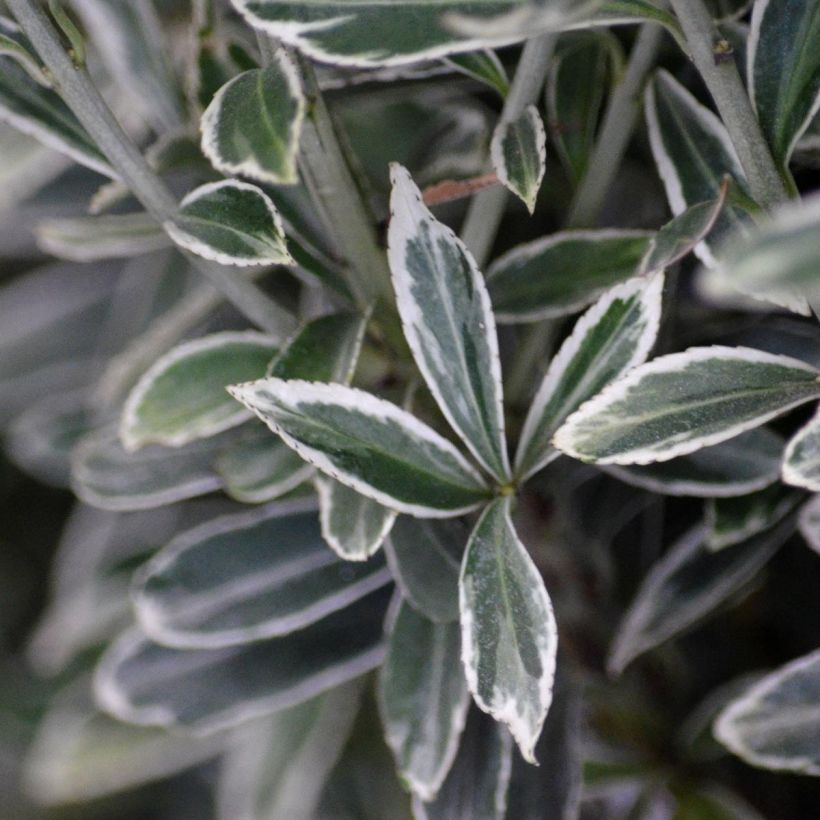

Plant habit
Flowering
Foliage
Botanical data
Euonymus
japonicus
Microphyllus Albovariegatus
Celastraceae
Japanese Spindle, Evergreen Spindle
Cultivar or hybrid
Other Japanese Spindle Trees - Euonymus japonicus
Planting and care
Euonymus japonicus Microphyllus Albovariegatus is best planted in spring in any well-drained soil in a sunny or lightly shaded position. Tolerant of most soil, the Japanese Spindle adapts to slightly acidic, neutral, or slightly alkaline soils, but does not tolerate heat and dry soils well. Pruning is unnecessary, it is better to pinch the young plants to encourage branching and only remove dead or diseased wood. Apply fertilizer twice a year, in early spring and autumn. In case of drought, water to maintain a beautiful foliage. Susceptible to mildew.
Planting period
Intended location
Care
- , onOrder confirmed
Reply from on Promesse de fleurs
Evergreen shrubs
Haven't found what you were looking for?
Hardiness is the lowest winter temperature a plant can endure without suffering serious damage or even dying. However, hardiness is affected by location (a sheltered area, such as a patio), protection (winter cover) and soil type (hardiness is improved by well-drained soil).

Photo Sharing Terms & Conditions
In order to encourage gardeners to interact and share their experiences, Promesse de fleurs offers various media enabling content to be uploaded onto its Site - in particular via the ‘Photo sharing’ module.
The User agrees to refrain from:
- Posting any content that is illegal, prejudicial, insulting, racist, inciteful to hatred, revisionist, contrary to public decency, that infringes on privacy or on the privacy rights of third parties, in particular the publicity rights of persons and goods, intellectual property rights, or the right to privacy.
- Submitting content on behalf of a third party;
- Impersonate the identity of a third party and/or publish any personal information about a third party;
In general, the User undertakes to refrain from any unethical behaviour.
All Content (in particular text, comments, files, images, photos, videos, creative works, etc.), which may be subject to property or intellectual property rights, image or other private rights, shall remain the property of the User, subject to the limited rights granted by the terms of the licence granted by Promesse de fleurs as stated below. Users are at liberty to publish or not to publish such Content on the Site, notably via the ‘Photo Sharing’ facility, and accept that this Content shall be made public and freely accessible, notably on the Internet.
Users further acknowledge, undertake to have ,and guarantee that they hold all necessary rights and permissions to publish such material on the Site, in particular with regard to the legislation in force pertaining to any privacy, property, intellectual property, image, or contractual rights, or rights of any other nature. By publishing such Content on the Site, Users acknowledge accepting full liability as publishers of the Content within the meaning of the law, and grant Promesse de fleurs, free of charge, an inclusive, worldwide licence for the said Content for the entire duration of its publication, including all reproduction, representation, up/downloading, displaying, performing, transmission, and storage rights.
Users also grant permission for their name to be linked to the Content and accept that this link may not always be made available.
By engaging in posting material, Users consent to their Content becoming automatically accessible on the Internet, in particular on other sites and/or blogs and/or web pages of the Promesse de fleurs site, including in particular social pages and the Promesse de fleurs catalogue.
Users may secure the removal of entrusted content free of charge by issuing a simple request via our contact form.
The flowering period indicated on our website applies to countries and regions located in USDA zone 8 (France, the United Kingdom, Ireland, the Netherlands, etc.)
It will vary according to where you live:
- In zones 9 to 10 (Italy, Spain, Greece, etc.), flowering will occur about 2 to 4 weeks earlier.
- In zones 6 to 7 (Germany, Poland, Slovenia, and lower mountainous regions), flowering will be delayed by 2 to 3 weeks.
- In zone 5 (Central Europe, Scandinavia), blooming will be delayed by 3 to 5 weeks.
In temperate climates, pruning of spring-flowering shrubs (forsythia, spireas, etc.) should be done just after flowering.
Pruning of summer-flowering shrubs (Indian Lilac, Perovskia, etc.) can be done in winter or spring.
In cold regions as well as with frost-sensitive plants, avoid pruning too early when severe frosts may still occur.
The planting period indicated on our website applies to countries and regions located in USDA zone 8 (France, United Kingdom, Ireland, Netherlands).
It will vary according to where you live:
- In Mediterranean zones (Marseille, Madrid, Milan, etc.), autumn and winter are the best planting periods.
- In continental zones (Strasbourg, Munich, Vienna, etc.), delay planting by 2 to 3 weeks in spring and bring it forward by 2 to 4 weeks in autumn.
- In mountainous regions (the Alps, Pyrenees, Carpathians, etc.), it is best to plant in late spring (May-June) or late summer (August-September).
The harvesting period indicated on our website applies to countries and regions in USDA zone 8 (France, England, Ireland, the Netherlands).
In colder areas (Scandinavia, Poland, Austria...) fruit and vegetable harvests are likely to be delayed by 3-4 weeks.
In warmer areas (Italy, Spain, Greece, etc.), harvesting will probably take place earlier, depending on weather conditions.
The sowing periods indicated on our website apply to countries and regions within USDA Zone 8 (France, UK, Ireland, Netherlands).
In colder areas (Scandinavia, Poland, Austria...), delay any outdoor sowing by 3-4 weeks, or sow under glass.
In warmer climes (Italy, Spain, Greece, etc.), bring outdoor sowing forward by a few weeks.
